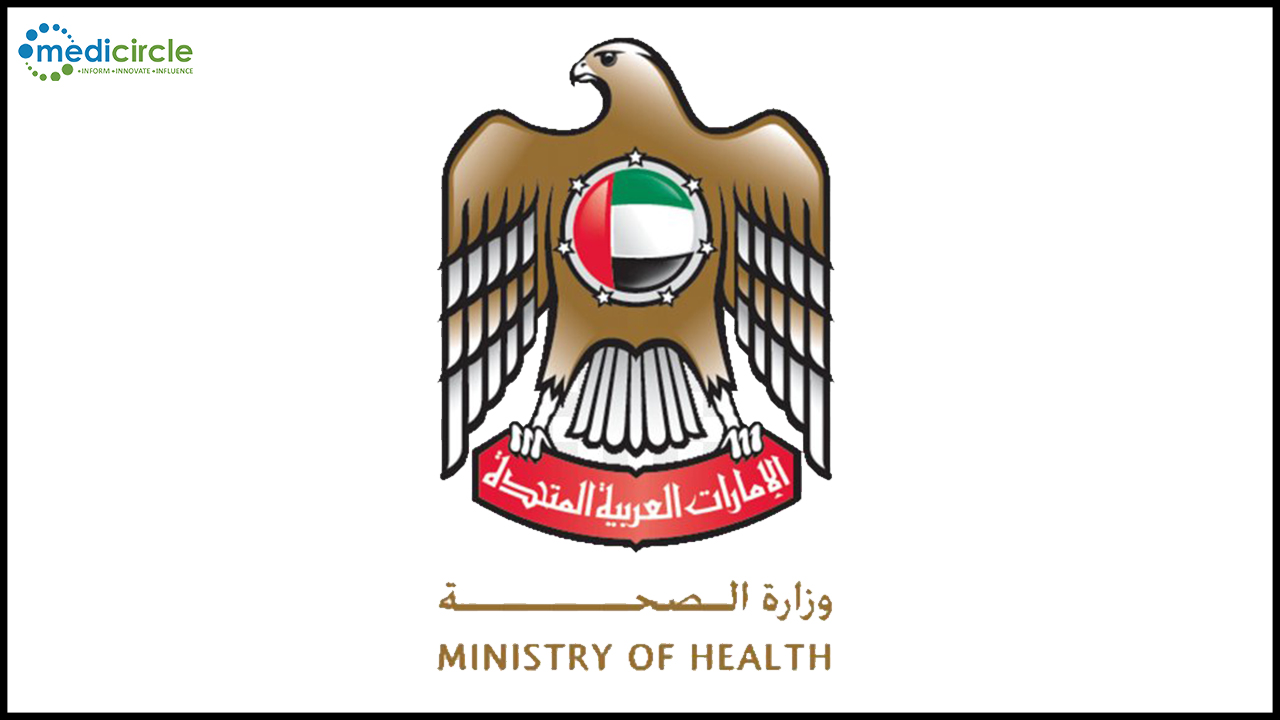The UAE Government has announced the detection of 300 new coronavirus cases among various nationalities, taking to 2,659 the number of infections in the country.
The UAE Government also announced the full recovery of 53 patients after receiving the necessary medical care, raising the total number of patients who recovered to 239 to date.
The announcement was made by the Ministry of Health and Prevention during a regular media briefing on Wednesday, wherein Abdul Rahman bin Mohammad bin Nasser Al Owais, Minister of Health and Prevention, and Dr. Farida Al Hosani, the official spokesperson for the UAE health sector, highlighted the latest COVID-19 developments in the country and the measures taken by Emirati authorities to combat the spread of the pandemic.
Abdul Rahman bin Mohammad bin Nasser Al Owais, Minister of Health and Prevention, revealed that the UAE had conducted a record number coronavirus tests in a short time, reaching 539,195 tests nationwide until yesterday.
He said: ''These tests have been conducted in advanced screening centres and the figure underscores the government's commitment to fight the novel virus and protect the health, safety and wellbeing of the community. It also reflect the robustness of our health systems and competency of our health professionals. ''scale, scope and number of tests will be doubled in the next stage.'' The minister expressed profound thanks to the frontline in the nation's defence - doctors, nurses and paramedics - who are fighting the virus.
''Safety and wellbeing of all is a priority for us, it is a shared national responsibility,'' he concluded.
Abdul Rahman Al Owais noted the UAE has carried out these tests at a time the world is experiencing exceptional circumstances, during which the UAE citizens and residents have shown cohesion and solidarity as well as adherence to preventive measures announced by the government.
''The UAE will continue to take measures to contain the spread of the COVID-19. The health sector's top priority has been to conduct as many tests as possible which resulted in early detection of infected cases, tracing contacts and isolating them,'' he told the media briefing.
Dr. Farida Al Hosani said the new cases were detected upon examining people who came in contact with previously infected patients and did not adhere to preventive measures and quarantine protocols or maintain sufficient physical distance. Others, she added, were individuals who came into the country from travels abroad.
''The newly diagnosed patients of various nationalities are in a stable condition and receiving the necessary medical care,'' Dr. Al Hosani affirmed.
Speaking about the latest developments in the local labour market during the media briefing, Abdullah Ali Al Nuaimi, Acting undersecretary for Communication and International Relations at the Ministry of Human Resources and Emiratisation, MoHRE, admitted that the labour market was among the sectors directly and widely affected by the repercussions arising from the coronavirus spread.
Abdullah Al Nuaimi said The Ministry of Human Resources and Emiratisation launched ''The National Program for Labor Market Stabilisation" to ensure the continuity of performance of business in the private sector in light of a series of preventive measures and precautionary measures taken at the federal level for the federal and local government work system to confront the "novel coronavirus" and contain its spread.
According to him, the program includes a package of measures to support employers and workers in the private sector, nationals and residents, in an integrated manner with the economic support packages provided by the state, in a bid to reduce the impact and repercussions of precautionary measures on the national economy. It also includes a set of precautionary measures to protect workers in the private sector from infection with the coronavirus in a manner that ensures the continued performance of business in the private sector.
''The program, prepared by the Ministry in coordination with the National Crisis Emergency and Disasters Management Authority, NCEMA, features three pillars: workforce, Emiratisation and administrative support for private sector companies,'' he explained.
With regard to the workforce's protection, Al Nuaimi said private sector companies were advised to reduce gatherings of workers in places of work, services centres and buses transporting the workers.
Within the framework of the precautionary measures of the program to protect workers in the private sector and those dealing with its facilities, Al Nuaimi added the ministry has reduced the attendance of workers in the private sector establishments to the minimum necessary for the conduct of business, so that the percentage of workers whose work requires being in the workplace does not exceed 30 percent of the total number of employees in an establishment. Establishments operating in vital sectors like health, food industry, energy and finance were exempted.
''Number of customers at service delivery centres should not exceed 30 percent of the total capacity and preventive health measures should be applied,'' he added.
The preventives measures also oblige upon private sector entities to put in place a mechanism for transporting workers to and from their workplaces, ensuring that the number of transported workers should not exceed 25 percent of vehicles’ seating capacity. Employers should also ban gatherings and convening of cultural, social and sporting activities at workers’ accommodation while minimising the number of workers during mealtime and maintaining at least a two-metre space between every two workers.
The ministry, he said, has issued a temporary guide on regulations of remote work in private establishments in such emergencies, where employer obligations include the provision of necessary technical tools to perform work remotely by using smart platforms.
On the Emiratisation side, he said the ministry has set up a special committee to look into the complaints of nationals working in the private sector and follow up their conditions in coordination with the relevant federal and local government authorities in a manner that embodies the principle of complementarity of roles and partnership between the various authorities dealing with Emiratisation in implementation of the directives of the wise leadership which is constantly following this important national file.
''MoHRE is preparing support packages aimed at enhancing job security and supporting the stability of nationals working in various economic sectors, reducing operational and administrative burdens on private sector companies, especially those most affected by economic repercussions and preventive measures.''

 â€The UAE Government also announced the full recovery of 53 patients after receiving the necessary medical care, raising the total number of patients who recovered to 239 to date.
â€The UAE Government also announced the full recovery of 53 patients after receiving the necessary medical care, raising the total number of patients who recovered to 239 to date.












.jpeg)

.jpeg)










.jpg)




.jpg)

